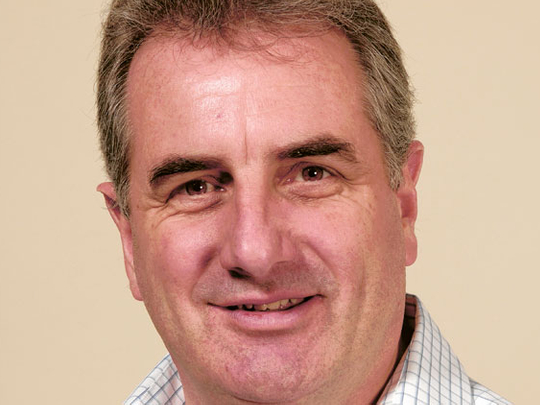
Dubai: With the region's focus riveted on the political and economic landscapes, its tech industry — as represented by start-ups and small to mid-sized enterprises — is finding the going difficult. The steady stream of projects that used to keep these businesses operational have dried up quite a bit since the Tunisian revolt picked up steam.
According to industry sources, tech companies based in Egypt and Jordan have been particularly hit, and if this continues could well have an impact on the wider region as well. The situation could be even worse for start-ups as they have to bear the burden of insufficient funding at a time when they are most in need of it.
Peter Job, founder and CEO of UK headquartered tech consultancy Intergence Systems knows a thing or two about tech funding. In fact one of his newly spun-off businesses was the recipient of a $2 million cash backing.
Job believes that the same could apply for regional start-ups, but with a few caveats in place.
GULF NEWS: IT start-ups and those needing additional funding have never had it so bad in the region. Do you see a possible solution?
Peter Job: Our own experience has shown that if you have real innovation and a track record you can still raise money.
Intergence Systems spun out a new company, Real-Status, with a successful funding round which raised $2 million to target the emerging ICT visualisation market. Real-Status operates in the $1.3 billion sector of IT dashboard and analysis software. The funding will be used to commercialise Real-Status' first product — HyperGlance — and to further develop the business.
Real-Status is already involved in customer trials with multinational companies.
Real-Status is the first spin out by Intergence and we are already working on other projects in collaboration with private sector companies and academia.
Do you feel that such funding might necessarily have to be "imported" rather than sourced regionally?
Possibly. Access to resources is an issue across the region.
Traditionally funding start-ups is done by savvy investors who will huddle around academic centres of excellence. That's why we are based in Cambridge and our innovation has been rewarded with funding.
As the Middle East investment in new higher education centres starts to pay off, you will see the same clusters of innovation starting to form. The key is to encourage the local talent to stay in the region.
Are tech funds that keen to look at opportunities in the region?
Our experience is that tech funds will look at opportunities that have the right technology and business model to succeed in the particular market place.
In the past, tech start-ups in Jordan and Egypt have been at the forefront in developing solutions and services for use in the region. Is there a real risk that the tech financing pipeline is drying up?
There is an energy and dynamism in the market and a real interest in tech innovation. The region has a great opportunity given its rapid recent evolution and wealth to take some short cuts.
Rather than follow the same development path as other regions, [it can] make rapid progress to reach a par with the most tech advanced regions in the world.
Your company specialises in green office technology. How does this work?
In 2008, Intergence Systems was set up to develop software and services to support organisations in their need to reduce ICT based power consumption. The solutions are focused on advanced energy monitoring across global networks and virtualisation.
We are also a member of The Green Grid, a consortium that provides industry-wide recommendations on best practices, metrics and technologies that will improve overall data center energy efficiency.
The ‘energy efficient office' is one area of opportunity. Up to 40 per cent of energy used in the office is wasted, according to the findings of The Climate Group. That's equal to approximately £50 per person, or if we are thinking about the environment, approximately a quarter tonne of carbon dioxide for every person each year.
An UK legislation, known as the CRC Energy Efficiency Scheme, now requires the top 5,000 energy consumers to comply with strict carbon reduction targets. There is now talk of extending this scheme to capture 70,000 organisations.
You launched direct operations in the region in 2008. How did the business work its way through the crisis?
The Middle East already contributes around 25 per cent of our revenues. The new products we are introducing here will meet the needs of a region which needs better, faster and cheaper access to key IT resources.
We already have significant interest in Hyper-Glance from clients in the region following the preview at Gitex 2010 and successful completion of customer trials, which included companies in the Middle East.
We are now rolling HyperGlance out across the region and believe the timing is right.










